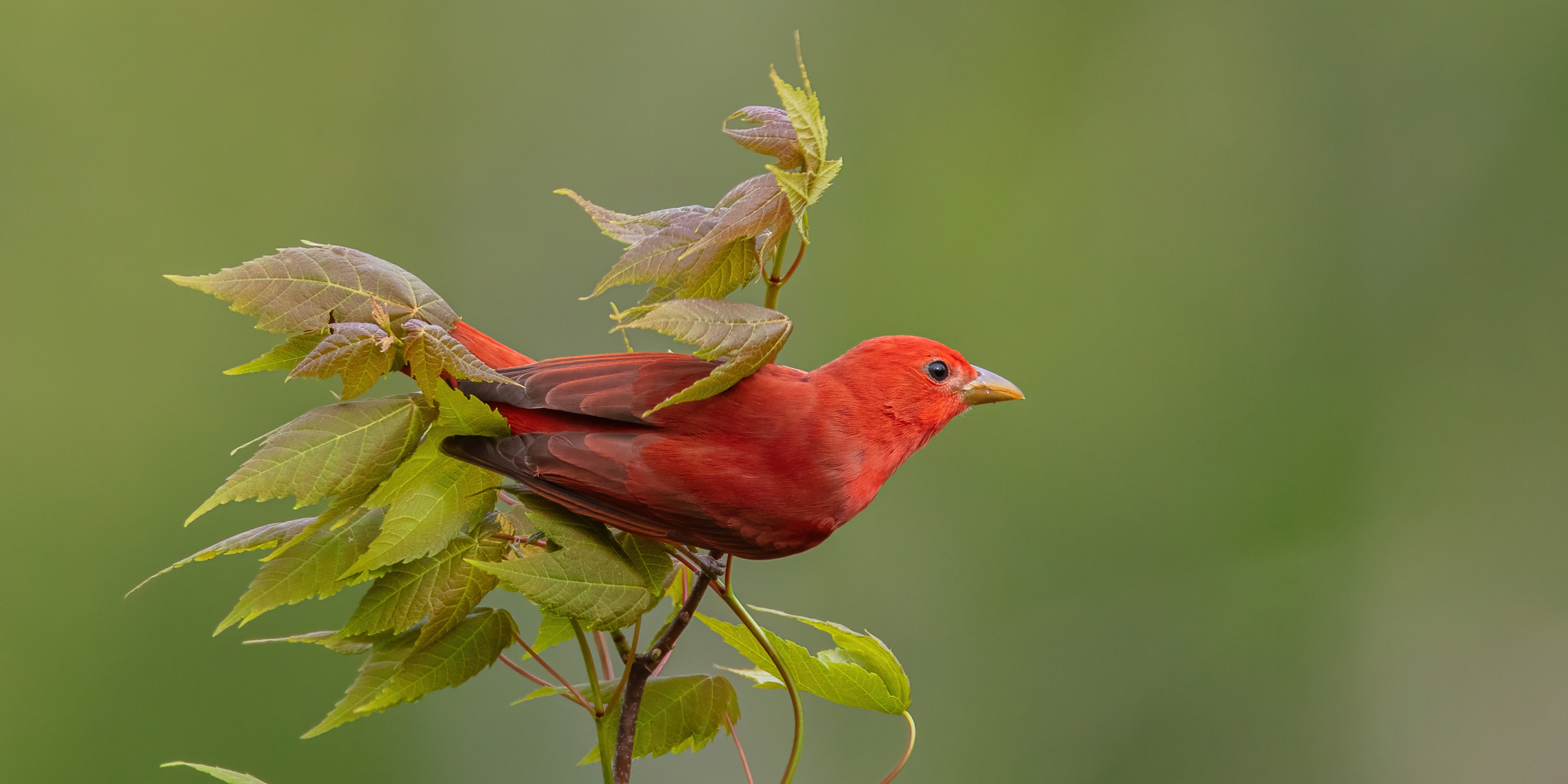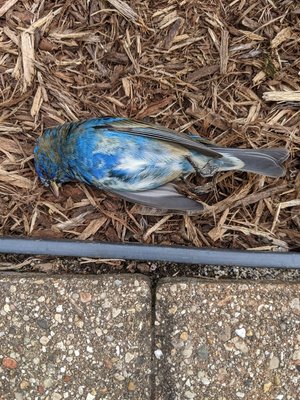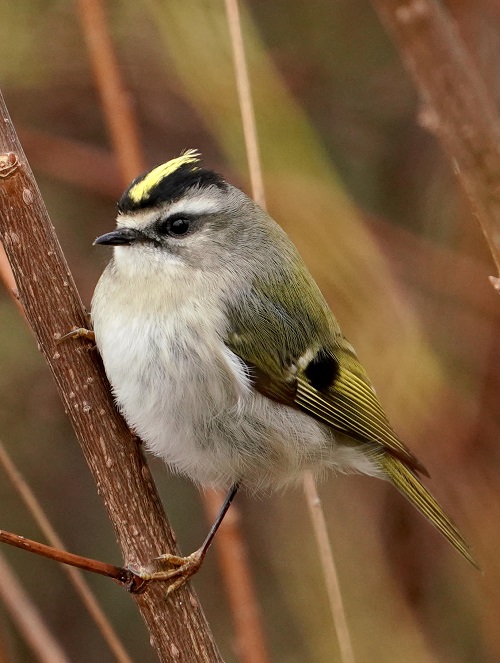Photo by Maria Parrott-Ryan for Madison Audubon
An Indigo Bunting died after crashing into a window in the Madison area
American Bird Conservancy
A Dane County Circuit Court judge has ruled in favor of birds, upholding Madison’s bird-friendly building ordinance, the first ever adopted in the state.
The ordinance, which went into effect in 2020 and requires new large construction and expansion projects to use modern bird-safe strategies and materials, was challenged by a group of Wisconsin construction and development interests in 2021. A legal firm representing the group quickly filed an appeal of the Aug. 16th ruling.
“Judge (Nia) Trammell ruled in favor of not only the City of Madison, but also in favor of birds,” said Bryan Lenz, bird collisions program manager for the American Bird Conservancy. “Each year thousands of birds die after collisions with glass in Madison, a problem that the City Council had the courage to do something about. I am elated to learn that the court agrees that birds are worth saving.”
Matt Reetz, executive director of Madison Audubon, said: “Of course it's good news for Wisconsin's incredible birds. But it's also good news for Wisconsinites — all of us who not only enjoy birds but benefit significantly from the amazing things they provide."
ABC President Mike Parr added: “It's hard for us to believe that this case was brought in the first place, since it's possible to design beautiful, affordable buildings that also protect birds. We feel like the court did the right thing in light of significant bird declines — taking steps to protect birds from one of the largest threats they face is the right thing to do.”
The Madison Common Council unanimously adopted the contested ordinance in August 2020. It was introduced by Alders Marsha Rummel and Keith Furman, drafted by city staff and revised with input from ABC and the Madison Audubon Society. It took effect Oct. 1, 2020.
In July 2021, a group of Madison-area developers, led by the Wisconsin Institute for Law and Liberty (WILL), mounted the first-ever legal challenge to a bird-friendly building ordinance (Dane County Case Number 2021CV001729). This was concerning news for conservation groups, including ABC, which has worked to promote life-saving bird-friendly building design legislation and to reduce the threat of window collisions to birds.
ABC, Madison Audubon and Wisconsin Society for Ornithology filed a friend of the court brief in support of the ordinance on April 1, 2022. Referenced in the Circuit Court's ruling, the brief provided important background information for the judge by summarizing the conservation crisis that window collisions pose to birds and discussing how solutions like Madison's building ordinance can save birds' lives. It also highlighted other municipalities that have enacted bird-friendly building ordinances without issue and presented research showing that window collisions in Madison are a serious local threat to birds.
Each year in the United States, up to 1 billion birds die following collisions with glass — that's approximately 2.7 million birds each day. These deaths are largely preventable through the use of bird-friendly design, a set of practices that includes reducing the total amount of glass, which also saves energy and greenhouse gas emissions, and using bird-friendly building materials that help birds avoid flying into buildings. Such materials include glass with subtle patterns or other properties that make it visible to birds, solar shading, and insect screens.
Twenty-two bird-friendly building design guidelines have been adopted by states and municipalities in the U.S. and Canada, and many more are currently pending. Cook County, Illinois (2008); Toronto, Ontario (2009); and San Francisco, California (2011) first enacted their guidelines over a decade ago. Bird-friendly design is also a part of many green building guidelines, including U.S. Green Building Council's LEED program. ABC has also created a Model Ordinance.
This was the first legal challenge to any of these guidelines.


